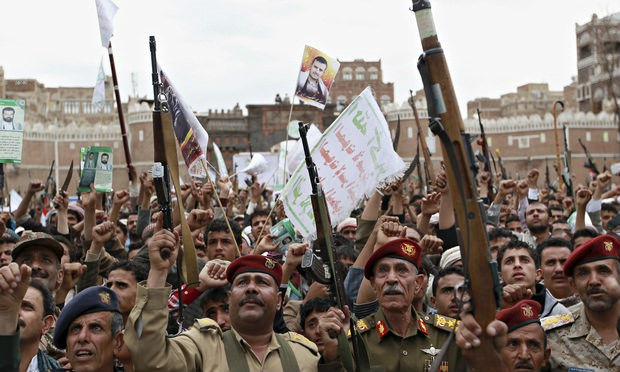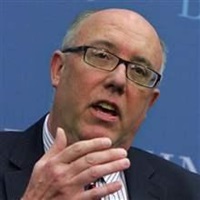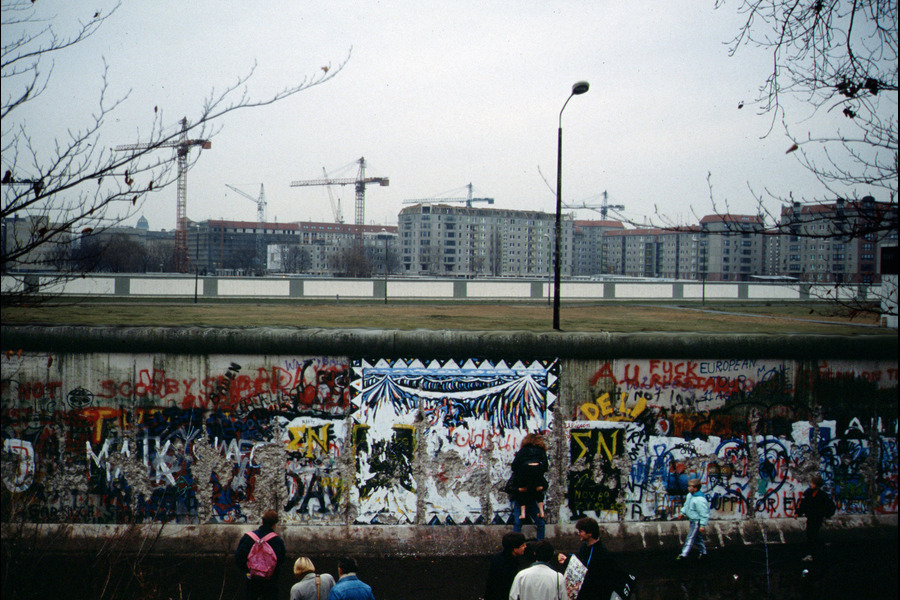A Bleeding Wound: Why the Yemen Peace Talks are Headed for Failure
As the United Nations tries to get peace talks started in Geneva on Yemen this week, the rebel alliance of Zaydi Shia Houthis and loyalists of former president Ali Abdallah Salih continues to advance on the ground.

Published by The Lawfare Institute
in Cooperation With

As the United Nations tries to get peace talks started in Geneva on Yemen this week, the rebel alliance of Zaydi Shia Houthis and loyalists of former president Ali Abdallah Salih continues to advance on the ground.
This weekend, the Houthis captured the provincial capital of Al Hazm in Al Jawaf province. They already controlled much of the province, but Al Hazm's capture consolidates their control of another large province on the border with Saudi Arabia. Al Jawf is home to a half million Yemenis, many of whom are Zaydi Shia. Al Hazm is ninety miles south of the Saudi border.
The rebels have increasingly taken the war north into Saudi territory. They launched a Scud missile at the large Royal Saudi Air Force base at Khamis Mushayt (a Patriot missile shot it down). Led by elite troops from Salih's former Republican Guard, a rebel force crossed into the Kingdom earlier this month briefly. Katyusha rockets, artillery, and mortars are regularly fired at Saudi towns along the frontier. The Houthis can't occupy Saudi territory, but they can make the border a bleeding wound.
After more than two months of conflict, the rebels have strengthened their grip on most of the country. Only in the far eastern region, in Hadhramaut province, have they failed to advance. Al Qaeda in the Arabian Peninsula (AQAP) controls Hadhramaut and its capital at Mukalla, Yemen's fifth largest city. This is AQAP's largest-ever stronghold. It is carrying out terror attacks on Houthi targets from its stronghold.
Exiled president Abd Rabbu Hadi still has control of parts of Aden, the largest port on the Arabian Sea. But even in Aden, the anti-Houthi camp is not united. Some fighters are southern secessionists who want independence for South Yemen, not a restoration of Hadi's government in Sanaa.
The Omani government has played the key behind-the-scenes role in persuading the rebels and Hadi to go to proximity talks in Geneva. The Omanis also arranged a dialogue between American diplomats and the Houthis. Sultan Qaboos was the only Gulf monarch not to support the Saudi war.
Muscat is doubtless worried that the rise of AQAP close to its western Dhofar province is a potential threat to Omani security. It is also troubled that the war will create refugee flight. The Omanis worried from the start of Operation Decisive Storm that the Saudis had panicked and started a war without the capability to bring about a decisive quick outcome.
Hadi and his Saudi ally wants the Geneva talks to focus on implementing UN Security Council Resolution 2216, which calls for the Houthis to withdraw from Sanaa and other major cities. The Houthis have no incentive to do so and the talks are unlikely to make progress. The rebel alliance wants Hadi to give up the presidency and accept Houthi domination of the country. Riyadh will not accept that outcome, particularly since it would be seen as a victory for Iranian influence in the Arabian Peninsula. Saudi Arabia's war is an increasingly costly and bloody stalemate and a humanitarian disaster.
Bruce Riedel is the Director of the Intelligence Project and a Senior Fellow at the Brookings Institution. He joined Brookings in 2006 after 30 years service at the Central Intelligence Agency including postings overseas in the Middle East and Europe. Riedel was a senior advisor on South Asia and the Middle East to the last four presidents of the United States in the staff of the National Security Council at the White House.
This article is cross-posted from Markaz.





